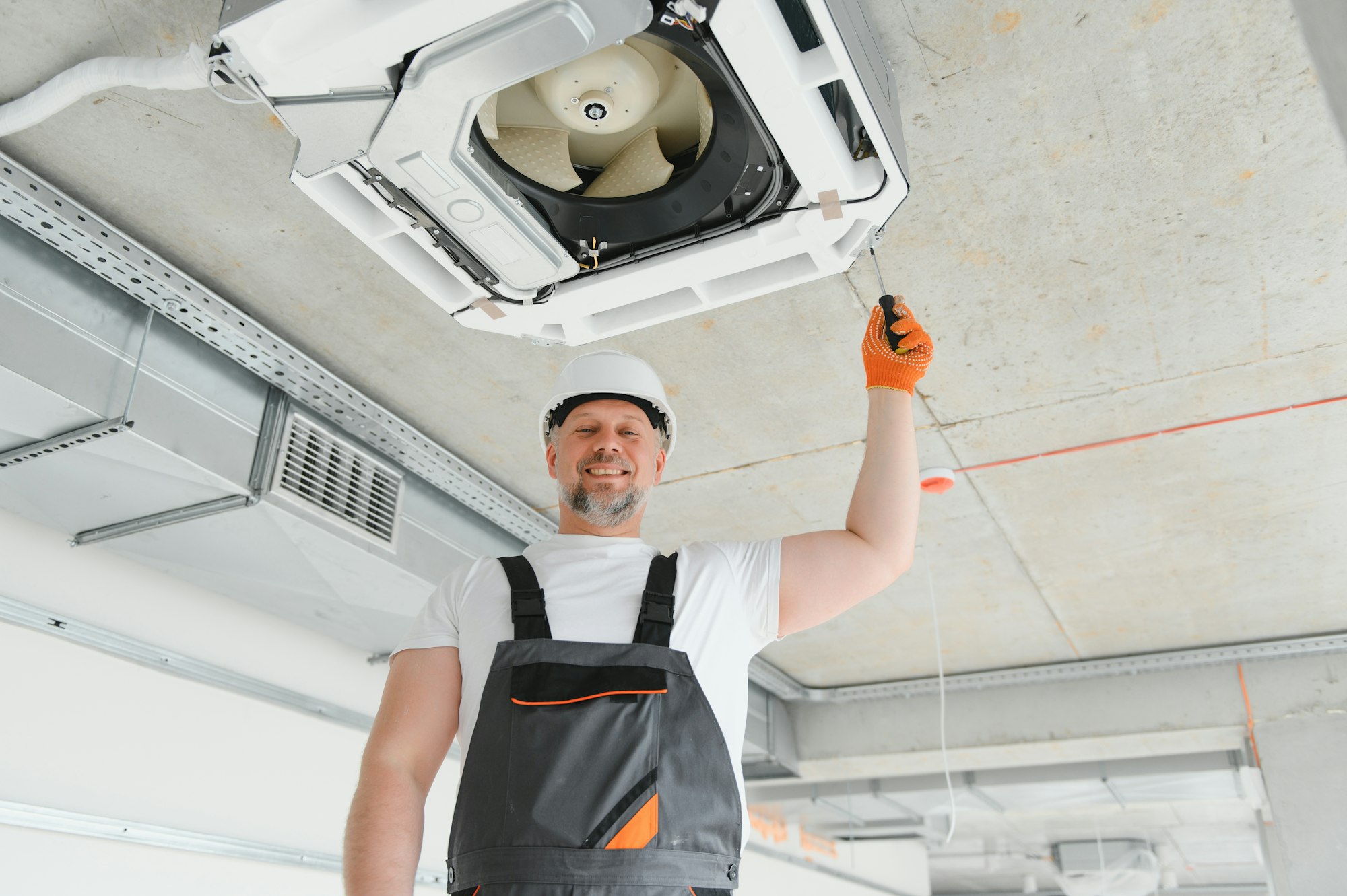Commercial spaces are all about business and profitability. Be it the summer or winter season, businesses run and contribute to a nation’s GDP (Gross Domestic Product) in a big way. And therefore, every commercial space owner ensures to maintain it by keeping it clean and comfortable.
What’s essential to a commercial set up is air conditioning installation which adds to the comfort of the staff and visitors.
In the UK, the warm summers with rising temperatures demand aircon installation in homes and offices. Areas like conservatories and sunrooms become hotter in summers as the heat gets trapped inside, and so they essentially require air conditioning installation.
The way architects and home construction contractors stress the need for efficient ventilation system installation before planning aliving space, residential or commercial.
In the same way, interior design professionals emphasise air conditioning installation to cover every nook and corner of the space.
The ultimate aim is to ensure comfort for the inhabitants of the space, especially when it’s commercial property, where professionals meet for business activities.
From the reception, the cabins for officials, and the conference room to common areas like café and recreation rooms, every place needs aircon installation.
Before we talk about air conditioning installation and its cost in the UK, let us know the types of air conditioners available for the commercial sectors.
WINDOW AIR CONDITIONER – the most commonly used and preferred air-conditioning solution for smaller spaces
Installed in the windowpane, the window air conditioner is the most preferred unit for homes and small offices. These units are mostly installed in office cabins, small meeting rooms, pantry areas, and server rooms.
The window air conditioner is easy to handle, install, repair and maintain as everything is integrated into one unit. It simply works on the ‘plug and play’ system, so it is considered a hassle-free solution.
It saves the hassle of installing additional outdoor units or refrigerant piping across the commercial space. It is quite energy efficient as compared to other types of air conditioners.
SPLIT AIR CONDITIONER – the second most loved and installed air-conditioning solution for domestic and commercial premises.
Divided into two – indoor and outdoor – units, the split air conditioner is ideal for enclosed spaces with no outlet or window. The split air conditioning system is ideal for retail shops, basement, go down areas, and independent rooms or cabins in a large area.
The outer unit of the split air conditioner consists of the compressor, condenser and fan that keep the noise and heat outside, ensuring that the indoor unit is free from noise and vibration.
Also, in most cases, the indoor unit of the split air conditioner is strategically placed to complement the room interior, making it the most loved air conditioner system.
DUCTED OR CENTRALISED AIR CONDITIONER – the best-suited air-conditioning solution for commercial spaces, covering every corner
Designed for bigger and organised commercial spaces and buildings, ducted air-conditioning units are meant to be concealed within the false ceiling. What you see is the air outlet unit – mounted on the wall or ceiling of the rooms. The airflow is managed by a wall-mounted controller.
Ducted air-conditioning units are installed in hotels, government offices, schools and corporate houses. Preferred for their adaptability, these units are ideal for conservation areas, listed buildings and premises where installing an outdoor condenser are not permitted or may ruin the façade or look of the building.
While planning a building structure, the contractors and planners always ensure to conceal refrigerant pipes for ducted air-conditioning units to avoid any last-minute hassle.
FREESTANDING OR PORTABLE AIR CONDITIONER – the adaptable air-conditioning solution for both residential and commercial spaces.
Suitable for both residential and commercial premises, freestanding or portable air conditioning systems are ideal for rooms where there is not much ceiling space or areas having glass roofs. These systems fit perfectly against inside walls.
Due to their smart design and looks, portable air conditioners are often used to add a visual appeal to the room space and design.
The freestanding air conditioning unit can be moved or shifted according to space setting and utilisation. This makes it a user-friendly option to choose from.
Key aspects that largely affect the air conditioning installation cost
The type of air conditioner to be installed
The first and foremost factor affecting the cost of air conditioning installation is the type of air conditioning installed.
Whether it is a house, office, or a commercial setup, the installation cost will depend on the type of air conditioning system.
As we discussed before, it could be a window, spilt, ducted or freestanding air conditioner. And so, every system requires a different kind of installation process.
The cost of installation can vary on the following factors:
- The amount of time required for installation
- The number of manpower needed for installation
- The type of material required for installation
The dimension of the area that requires air conditioning installation
Once you decide the type of air conditioner you want to install on your premises, you should have the measurements of your area to be air-conditioned ready.
The larger the area to be air-conditioned, the larger capacity air conditioner you will require for your space.
The cost of air conditioning installation for a single floor will be lesser as compared to a multi-storey building.
The installation cost will also depend on the height and dimension of the rooms. If the height of the rooms is higher than the average ceilings, the air conditioner should be capable enough to maintain the required temperature in every room.
Generally, the space:aircon ratio is 1 ton:400 square feet or 37 m². In the UK, an average room size is 16 m² which equals a half ton air conditioner.
As a common perception, the ‘tonnage’ of the air conditioner has nothing to do with its weight; instead, it is the amount of air an air conditioner can remove in an hour from the room.
The aircon unit size to the space ratio equates to the number of units you may require to be installed in a room or premises.
What’s more, the effectiveness of cooling will also depend on the number of windows and doors in the room. The cooling can be greatly affected with more windows and doors on the premises. To curb this, there may be a requirement for wall and roof insulation, which can add to the overall cost.
Before installation, there are many other factors that can affect your budget while planning HVAC (Heating, Ventilation, and Air Conditioning) for your building

The air conditioning brand that you choose for your commercial setup
Normally, international air conditioner brands have special features and functionalities that make them supreme and superior to local brands. This, of course, makes them efficient and smarter, but it also increases your overall expenditure.
Some of the functions that make the air conditioner premium are:
- Timer: This function helps the operator to preset the air conditioner – the unit gets OFF after the set time slot
- Mobile app: Control your air conditioner from a remote location – on/off or change the running mode as per need
- Climate control: Make your air conditioner turn off once it reaches the preferred temperature
Choosing an air conditioner with lower output than required for your space
It is very important for you to choose an air conditioner that can give the desired output for the space in which you want to install it.
Choosing an air conditioner without assessing the dimension of your space may not give you value for money if it does not cool down the room as desired.
Similarly, an air conditioner that is highly powerful for a smaller space may prove to be expensive and may not be fully utilised.
In the UK, the output of an air conditioner is measured in British Thermal Units (BTUs). Let us know the optimal output required according to the size of a room.
| Area Dimension | BTUs/hour |
| 15 to 20 sq m | 5,000 per hour |
| 20 to 30 sq m | 6,000 per hour |
| 30 to 40 sq m | 10,000 per hour |
| 40 to 50 sq m | 13,000 per hour |
How much does it cost to install air conditioning?
Having discussed the crucial factors that directly or indirectly affect the installation cost of air conditioners, let us now talk about the average cost of air conditioning installation in the United Kingdom.
If you have decided to install an air conditioner for your commercial setup, you should always hire professional installation experts with good experience who can provide you the best service at an unbeatable price.
Here is the average installation cost range for air conditioning installation in the UK
| Type of Air Conditioner | Installation Area | Average Installation Cost |
| Split air conditioner | Single room | £1,250 to 2,500 |
| Split air conditioner | Double room | £1,500 to 2,750 |
| Split air conditioner | House (6 rooms) | £6,000 to 9,000 |
| Ducted air conditioner | Single room | £2,000 to 3,000 |
| Ducted air conditioner | Double room | £2,500 to 4,000 |
| Ducted air conditioner | House (6 rooms) | £10,000 to 14,000 |
Note: Single room refers to a home office setup while double room refers to a bigger bedroom or a conservatory
So, now that you are very well aware about the installation cost of air conditioners for commercial spaces, you can make the right decision and save on your expenses.
If you are in London, you can connect with a professional air conditioning solution provider backed by an experienced team that can offer the highest quality service at a truly unbeatable price.
Air Con Company is one such company that has been providing air conditioning services and solutions to residential and commercial clients across London and beyond. The company provides installation, repair and maintenance services at competitive prices. For any queries or assistance, Contact Air Con Company today.




